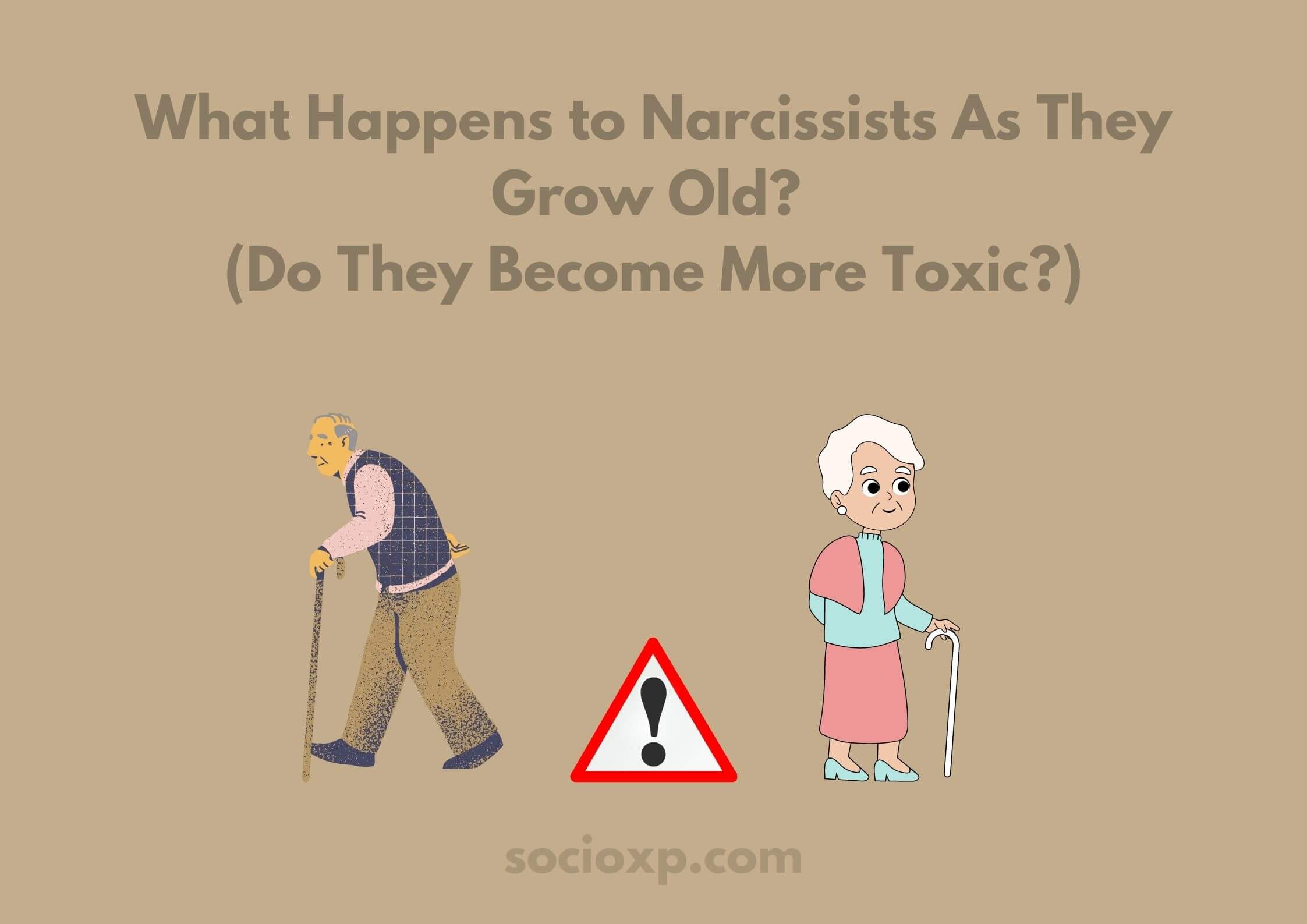Do INTJs Have Narcissistic Personality Disorder (NPD)? (What Makes Them Narcissists?)
Do INTJs Have Narcissistic Personality Disorder (NPD)? Narcissism is characterized by a preoccupation with oneself and a lack of concern for the feelings and needs of others. In this article, we will examine the link between INTJs and Narcissistic Personality Disorder in more detail, exploring the potential factors that contribute to this connection.
It is important to note that Narcissistic Personality Disorder is a diagnosable mental health condition that requires a professional diagnosis. Simply exhibiting some characteristics of narcissism may not equate to having the disorder.
To understand INTJs out of the 16 personalities, let us know more about them.

Who are INTJs?
INTJ – (Introversion-Intuition-Thinking-Judgement)
INTJs are individuals who have a personality type that is characterized by introversion, intuition, thinking, and judging. INTJs are analytical, logical, and strategic thinkers who are known for their ability to solve complex problems and devise efficient systems. They often have a clear vision of what they want to achieve and will pursue their goals with a single-minded focus. INTJs are independent and self-motivated, but they can also be reserved and private. They tend to value intellect, competence, and efficient use of time and resources.
The INTJ Personality type is a complete introvert who does not like to socialize. They are excellent at building strategies, problem-solving, and analysis. They are highly organized and always achieve solutions to most problems due to their logical reasoning and prefer to work alone.
As one of the rarest personality types, INTJ individuals are often described as independent, task-focused, analytical, and strategic. They are also known for their introverted nature and their tendency to prioritize logical explanations and systematic approaches to problem-solving. While these traits are generally seen as positive, some may argue that they can also make INTJs more prone to narcissistic personality disorder(NPD).

INTJs, like all other personalities, may exhibit narcissistic qualities at times. This is because the INTJ personality type is characterized by strong self-confidence, an analytical mind, and a focused determination to achieve their goals. These qualities can sometimes lead to narcissistic behavioral patterns, such as a tendency to focus on one’s own wants and needs, a desire for control over others, and a belief in one’s own superiority over others.
Many INTJ personalities are self-aware, reflective, humble, and able to work without getting their egos involved with whatever and whoever they work with. There are a few times when INTJs appear to be lonely aloof or emotionally uninvolved. but that does not necessarily mean a sign of narcissism. Rather than over-examining the situation when they are aloof from others, it is better to conclude that may be simply a reflection of their personality here with analytical nature and a need for unbiased analysis.
What is Narcissistic Personality Disorder? – Defining NPD (Narcissistic Personality Disorder)
Narcissistic Personality Disorder is a mental health condition, where the patient has extremely high admiration for themselves, including boosted self-esteem, self-centeredness, high self-worth, boosted ego, and a low tolerance for criticism, emotions, and attachments.
Narcissistic Personality Disorder is characterized by a lack of empathy for others, a grandiose sense of self-importance, and an immoderate need for admiration. Narcissists often believe that they are entitled to special treatment, and they tend to exploit others to fulfill their needs. The disorder typically develops in early adulthood and can persist throughout a person’s life. While Narcissistic Personality Disorder (NPD) is notoriously difficult to treat, it is essential to address the disorder as early as possible to prevent those affected from inflicting emotional harm on themselves and others.
It is a mental health condition that is characterized by an extensive pattern of grandiosity, a constant need for validation, admiration, and appreciation, and a lack of considerateness. People suffering from Narcissistic Personality Disorder have a boosted self-importance, ego, and an urge to constantly exploit for their own good.

Symptoms or Signs of Narcissistic Personality Disorder
These traits may differ from one individual to another, but these are some of the generalized behavioral patterns that can be commonly associated with almost many narcissists in general,
Self-Centeredness – Narcissists often prioritize their interests, needs, and benefits above others.
Manipulativeness – Narcissists can be skilled at manipulating others to what they want.
Lack of Empathy – Narcissists may have difficulty understanding or caring about the feelings of others.
Grandiosity – Narcissists often have an inflated sense of self-importance and may exaggerate their accomplishments or talents.
Lack of Accountability – Narcissists may resist taking responsibility for their actions which may be an impediment to others, yet they would blame someone else for their mistakes and never take accountability for their actions.
Need for Admiration – Narcissists always yearn for constant praise, admiration, attention, and appreciation.
Entitlement – Narcissists believe that they are entitled to special treatment and privileges.
Arrogance – Narcissists have a haughty attitude and a belief that they are superior to others.
Exploitative Behavior – Narcicits do not think twice before manipulating someone and use them for their own gain.
Envy – Narciissts may become envious of other people’s success, wealth, or qualities/talents.
Individuals with Narcissistic Personality Disorder also tend to have difficulty handling criticism or feedback that well as they consider feedback or criticisms as opposing their perceptions. Pointing fingers at a narcissist or blaming them might give a rise to their anger, resentment, intense desire for retaliation, or blame shifting.
Behavioral Traits of Narcissists
Some behavioral traits of narcissists are as follows,
- They use manipulation in all situations where they feel they are losing the grip
- They always see the negatives first
- They are selfish and inconsiderate
- Narcissists lack sensitivity and empathy.
- Have uncommon expectations and unusual fantasies
- You are always the wrongdoer and not them in their eyes
- They are almost incapable of praising others or giving enough credit to others
- They act over dramatically over trivial matters
- There is no winning against them in an argument
- They are highly competitive even with someone who is incomparable
- They cheat innumerable
- Have unhealthy relationships.
- Have regular mood swings.
- They use bygone grudges as their trump card
- They never provide straight answers
Causes of Narcissistic Personality Disorder
There are a few factors that contribute to developing this mental health disorder which include genetic, environmental, and psychological factors.
Genetic Factors – Narcissism has a genetic component that runs in families. It is like a legacy that is passed down in families. People with a family history of Narcissistic Disorder are more likely to develop this disorder.
Cultural and societal Factors – Certain cultures and societal factors promote such traits and behavioral styles among the dominant gender or some pre-dominant notions of society. This can lead to people following such rigid and unhealthy norms of society.
Childhood Experiences – Traumatic childhood experiences, such as abuse, manipulation, or neglect can contribute to the development of NPD.
Parenting Styles – An overly controlling, aggressive, or abusive parenting style can lead to the development of narcissistic traits in children.

Do INTJs have Narcissistic Personality Disorder (NPD)? (What Makes Them Narcissists?)
Nraicictsic Personality Disorder is characterized by a pervasive pattern of grandiosity, a constant need for admiration, and a lack of empathy. Narcissists tend to use manipulative tactics, such as gaslighting, in order to maintain their sense of power and control over others. Narcissists often believe that they are entitled to special treatment, and they tend to exploit others to fulfill their needs.
So what is the connection between INTJs and NPD?
One strong factor about INTJs is the way they tend to approach decision-making, and problem-solving. They prioritize impartial or objective reasoning, which clearly indicates that they value concrete evidence and logical analysis over social or emotional factors. So being critical of opinions may make them detached from people and their views and opinions, which may seem like a sign of being indifferent or aloof. Such indifferent conduct in dealing with people’s opinions can make INTJs appear egoistic, self-centered, or people who are solely focused on their idea and goals.
Another factor that may contribute to the perception of INTJs as a narcissist is their tendency to prioritize efficiency, competence, and logicality over the feelings or needs of other people. They have a “result-oriented mindset” which often results in neglecting human factors and only focusing on only achieving the best results. Such a personality or mindset may create a perception of arrogance, superiority, and an overpowering attitude which may be regarded as disrespecting or disregarding the input and contributions of other people.

But one important thing to note here is that these traits do not necessarily make INTJs narcissists as these qualities do not qualify you completely for having a mental health disorder. While some individuals with narcissistic Personality Disorder may exhibit similar behavioral patterns, it is important to differentiate between a personality type and a personality disorder. INTJs may prioritize logic and efficiency over other people’s intel or opinions, but this does not mean they lack empathy, disregard the feelings of other people or suppress them by overshadowing their existence.
If an INTJ does exhibit narcissistic tendencies, it can have a negative impact on their relationships with others. This is because INTJs have a tendency to become overly focused on their own goals and desires. But overall, INTJs are not inherently more or less prone to narcissism than any other personality type, their personality type, and their personality traits may make them more susceptible to exhibiting narcissistic tendencies at times. But it is also important to look on the positive side, which makes the INTJs mindful of how their behavior may impact others, and they also work on developing empathy, collaboration, and humility in their relationships. So these qualities certainly cannot make them qualifiable to being a narcissists.
Furthermore, many INTJs place significant value on personal growth and self-awareness, recognizing the potential pitfalls of their personality type and actively working to overcome them. This self-awareness can hardly be found among narcissists. This self-awareness can also help avoid the development of Narcissistic Personality Disorder, as individuals who are mindful of their behavior would certainly be less likely to engage in manipulative or harmful tactics.
So, circling back to the main question, “Do INTJs Have Narcissistic Personality Disorder (NPD)? (What Makes Them Narcissists?)”, the answer is most certainly a “NO”. While some of the traits associated with INTJs can create a perception of narcissism, it is important to differentiate between personality types and personality disorders. INTJs may prioritize efficiency and logic, but this certainly does not mean they lack empathy or disregard the feelings of those around them.
The connection between INTJs and NPD is tenuous at best. While some people may perceive INTJs as narcissistic due to their independent, task-forced, and logical nature, this does not make them disordered. INTJs have unique strengths and weaknesses, just like any other personality type, ad it is important to recognize and value their contributions to society as INTJs are one of the rarest personality types. With self-awareness and personal growth, INTJs can continue to thrive and contribute positively to the world around them.
So would it be appropriate to tag a person with a certain personality type as a narcissist? – Absolutely not! Let us not focus on determining and claiming people to be narcissists, but rather focus on healing and becoming humans with each passing day. People’s opinions are not in your hands, but being good or bad is indeed in yours. So neglect what people may predict about your personality type, rather focus on your strengths, spread positivity, and do good things for society that is all that matters.
Important Takeaways
So, circling back to the main question, “Do INTJs Have Narcissistic Personality Disorder (NPD)? (What Makes Them Narcissists?)”, the answer is most certainly a “NO”.
While some of the traits associated with INTJs can create a perception of narcissism, it is important to differentiate between personality types and personality disorders. INTJs may prioritize efficiency and logic, but this certainly does not mean they lack empathy or disregard the feelings of those around them.
The connection between INTJs and NPD is tenuous at best. While some people may perceive INTJs as narcissistic due to their independent, task-forced, and logical nature, this does not make them disordered. INTJs have unique strengths and weaknesses, just like any other personality type, ad it is important to recognize and value their contributions to society as INTJs are one of the rarest personality types. With self-awareness and personal growth, INTJs can continue to thrive and contribute positively to the world around them.
In conclusion, INTJs are not inherently more or less prone to narcissism than any other personality type, their personality type, and their personality traits may make them more susceptible to exhibiting narcissistic tendencies at times. But it is also important to look on the positive side, which makes the INTJs mindful of how their behavior may impact others, and they also work on developing empathy, collaboration, and humility in their relationships. So these qualities certainly cannot make them qualifiable to being a narcissists.
- How To Make A Narcissist Discard You And Leave You Alone? - March 21, 2024
- Narcissistic Supply: 9 Signs You May Be Someone’s Narcissistic Supply - March 11, 2024
- Narcissistic Abuse And Anxiety – 11 Symptoms of Narcissistic abuse-induced anxiety - March 9, 2024


